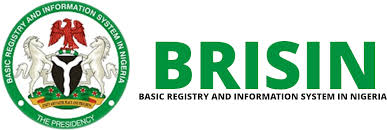BRISIN boss pushes for national data system support
By Funmilayo Adeyemi
Dr Anthony Uwa, Head of the Basic Registry and Information System in Nigeria (BRISIN), has called on Nigerians at home and abroad to rally behind the long-delayed national data project.
He emphasised that the initiative was crucial for addressing the country’s escalating challenges in security, identity management, and development.
In a statement issued in Abuja on Monday, Uwa expressed deep concern over the growing insecurity in several states where unidentified gunmen and kidnappers continued to perpetrate deadly attacks with little chance of identification or prosecution.
“The ongoing loss of lives in Benue, Plateau, Niger, Borno, Gombe, Enugu, and other states at the hands of unidentified assailants is deeply troubling.
“Who are these so-called gunmen? Where do they come from? Are they not part of communities, villages, and states, or are they simply entering undetected?”
He stressed that the absence of a centralised data infrastructure had created a safe haven for criminals, undermining national security and public trust.
“Without reliable data systems, criminals move freely and remain anonymous.
“We must ask ourselves, why can’t we trace them?” he said.
Beyond security, Uwa highlighted a broader crisis surrounding legal identity and documentation in Nigeria.
He cited the widespread use of forged documents, the frequent non-registration of births, deaths, and marriages, and the inconsistent issuance of identity cards and passports as major setbacks.
“Forgery and fraud thrive because we lack the infrastructure for real-time verification.
“Vital events often go undocumented, leading to a ripple effect of health, legal, and administrative challenges, including the problem of ghost workers,” he noted.
According to him, many Nigerians face humiliation at airports and border posts due to conflicting or unreliable documentation, further emphasising the need for a reliable identity system.
On the economic front, Uwa revealed that Nigeria lose billions of Naira annually to fraud, unregulated businesses, and informal sector activities, issues that could be addressed through a robust national data system.
“Many government programmes fail not because they are poorly designed, but because they are not backed by accurate, actionable data,” he added.
Uwa urged all Nigerians to support the implementation of BRISIN, which was approved in 2007 as a foundational platform for building an inclusive data and information infrastructure for national governance and development.
He said in spite of its importance, the project had seen minimal progress in nearly two decades, largely due to funding challenges.
“It’s time for Nigerians everywhere to take ownership of our future.
“Visit www.brisin.ng and click ‘SUPPORT BRISIN’ to help restore national credibility, strengthen security, and enable effective governance through data.”(NAN)
Edited by Abiemwense Moru






